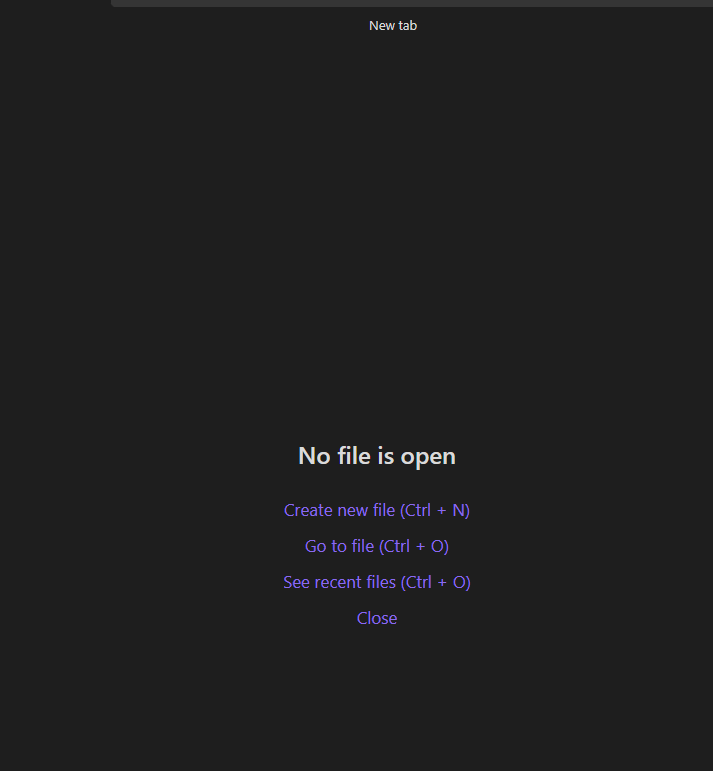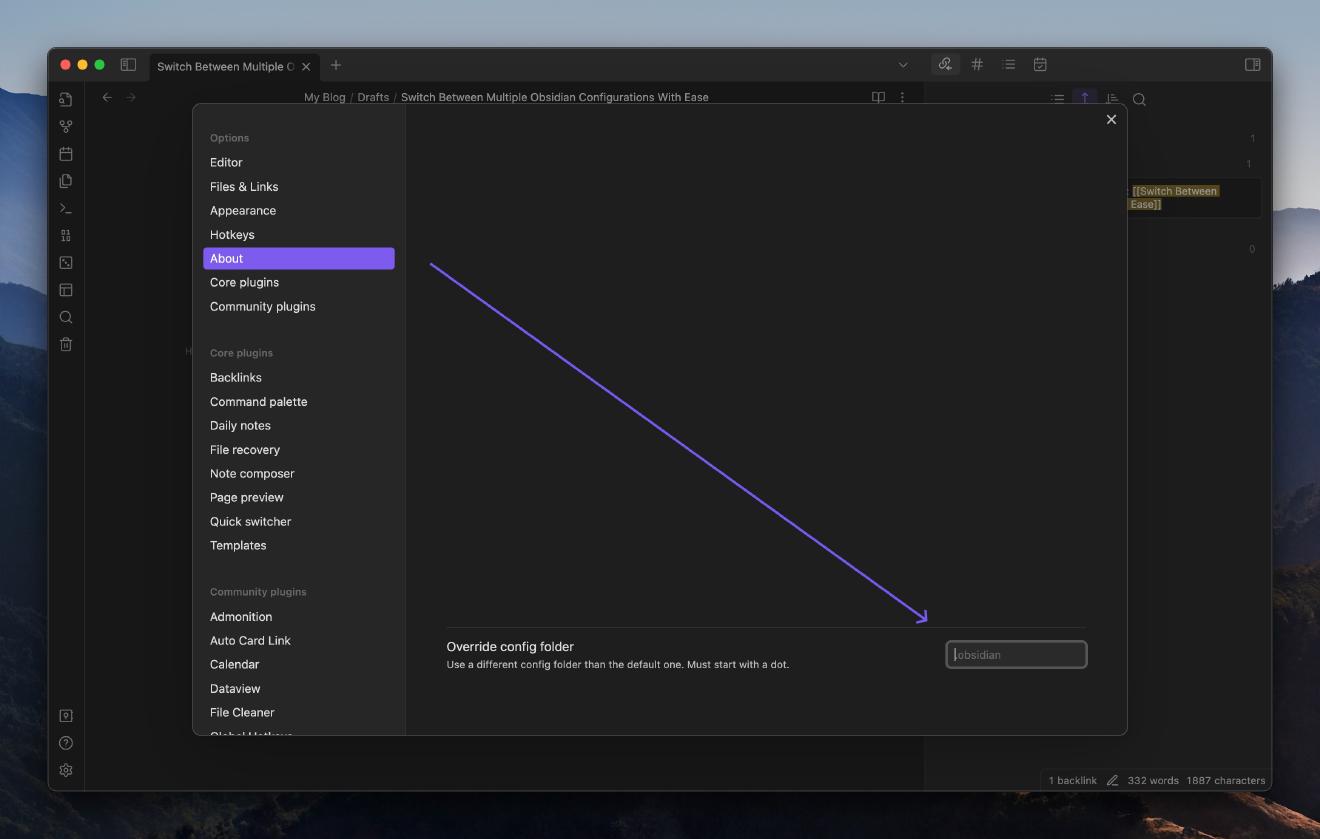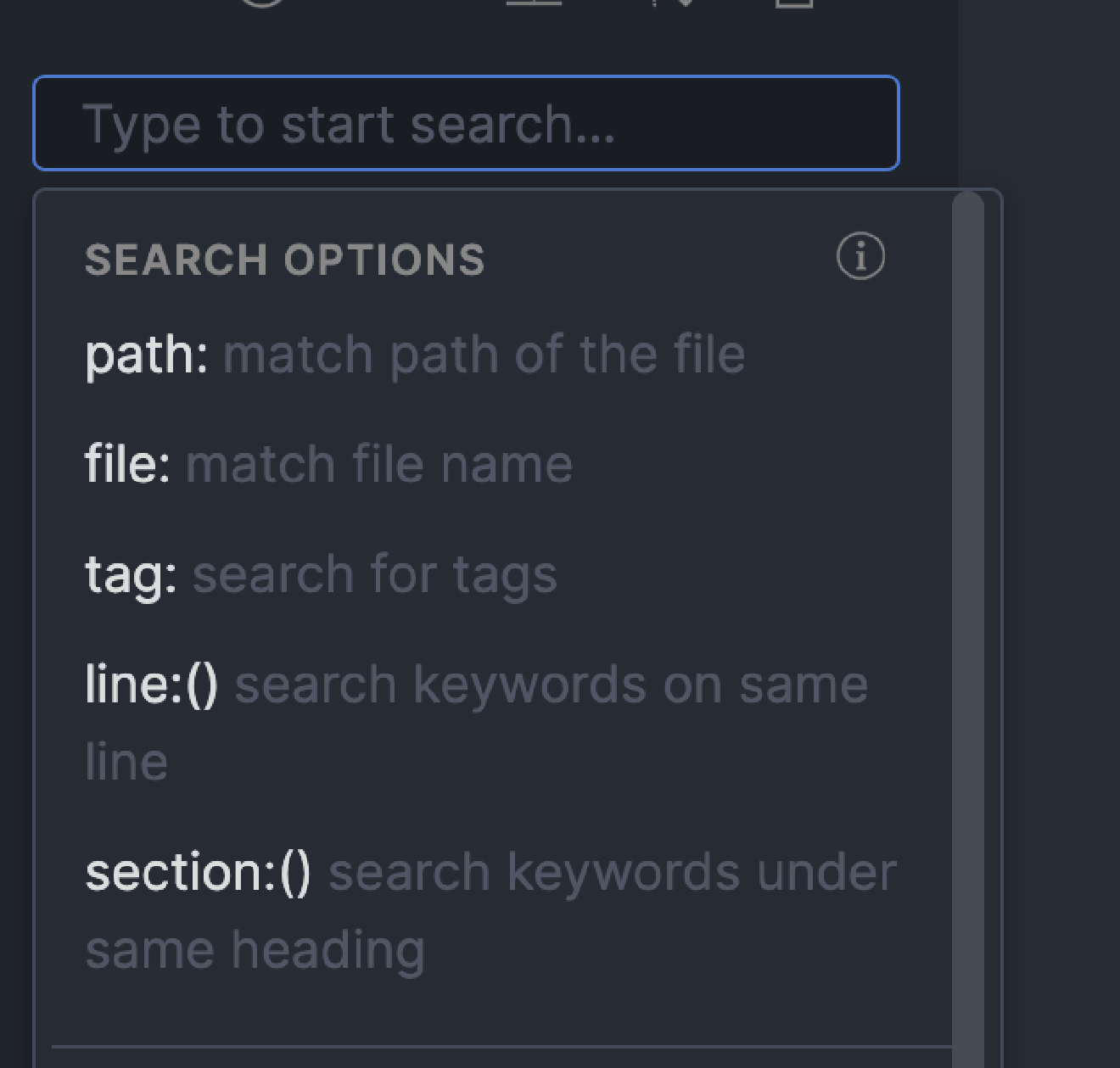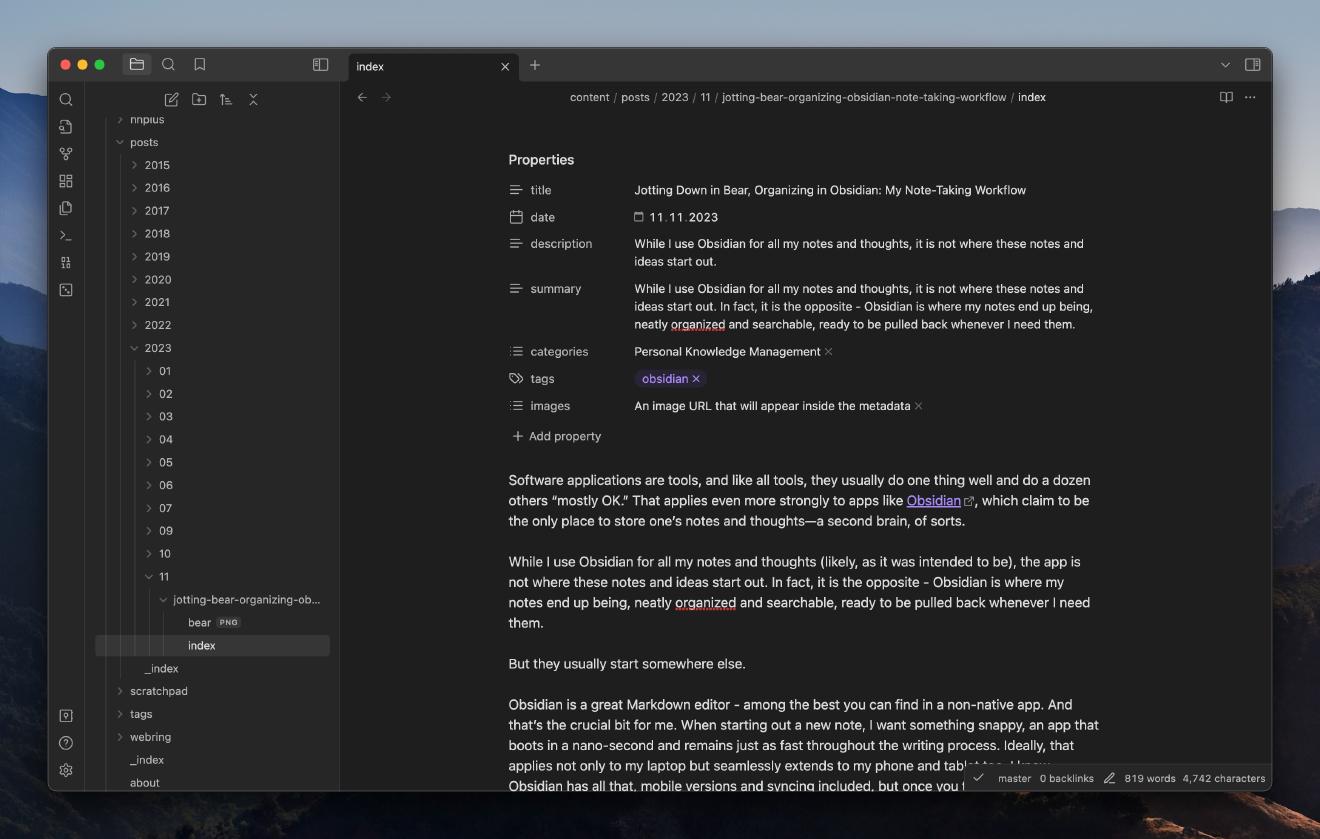A few months ago, I expressed my frustration with Obsidian’s lack of a real search for notes. I know that the word real is entirely subjective here, but I believe it is fair to use it. For my standards, Obsidian’s default content search is decent for content filtering but not for content discovery.
Thankfully, a big part of what makes Obsidian so great is not just the tool itself but its ecosystem of plugins too. I knew that sooner or later, someone else out there would get onto building an excellent search extension for Obsidian. Or else I would have had to do it myself.
I was lucky to discover Omnisearch on the Obsidian subreddit a few days ago. It promised to do exactly what I needed from a well-built search engine.
Rather than simply returning all notes where a particular query appears, Omnisearch carefully weighs the relevance of the note’s content to the query. If the query appears in the title or within any headings, a note will be considered more relevant than if the query appeared anywhere in the text. The number of occurrences also plays a significant role. Last but not least, Omnisearch will take care of occasional misspellings by partially matching the content to the query. It can do all that, thanks to an underlying JavaScript library called Minisearch.
A list of scored and matched results comes out, with the ones that best describe the search query coming at the top.

Initially, I was skeptical but decided to give it a try. I am happy that I did because Omnisearch is exactly what I wanted! I went as far as to replace the use of Obsidian’s default Quick Switcher with Omnisearch’s “Vault Search.” It now serves as both a global file search and a quick file switcher.

Is it performant? #
At this time, Omnisearch performs a full re-index of an Obsidian vault upon its opening. The resulting index is then kept in memory and continuously updated in the background as one adds changes to the notes in the vault. Being in-memory is what makes it so fast when performing a search. A full re-index is also blazing fast at this point - on my decently-sized vault of a couple of hundred notes, it still takes less than a second, and that, only if I close the vault and open it again. This may not be the case with larger vaults, which is one of the reasons I pointed out to the original creator of Omnisearch that some stored index cache is possibly not such a bad idea.
At this point, I am happy that Omnisearch exists. It solves my immediate needs, and I look forward to seeing it develop even further.
Have something to say? Join the discussion below 👇
Want to explore instead? Fly with the time capsule 🛸
You may also find these interesting
Do You Use One Or Multiple Obsidian Vaults?
Most people using Obsidian prefer using a single vault for all their notes, according to a quick poll. This gives users more flexibility and fine-grained control in organizing their notes. A single vault also contains all of one’s notes in one place - this is especially useful for cross-linking and knowledge discovery.
Switch Between Multiple Obsidian Configurations With Ease
The solution to having separate Obsidian configurations for each device is to use different settings folders for each device. This way, you can keep your settings separate and synchronized across devices.
3 (+1) Things Evernote Got Right
A look at three features that made Evernote click for me back in the day — ones that modern note-taking apps still struggle to replicate fully.
Jotting Down in Bear, Organizing in Obsidian: My Note-Taking Workflow
While I use Obsidian for all my notes and thoughts, it is not where these notes and ideas start out. In fact, it is the opposite - Obsidian is where my notes end up being, neatly organized and searchable, ready to be pulled back whenever I need them.




